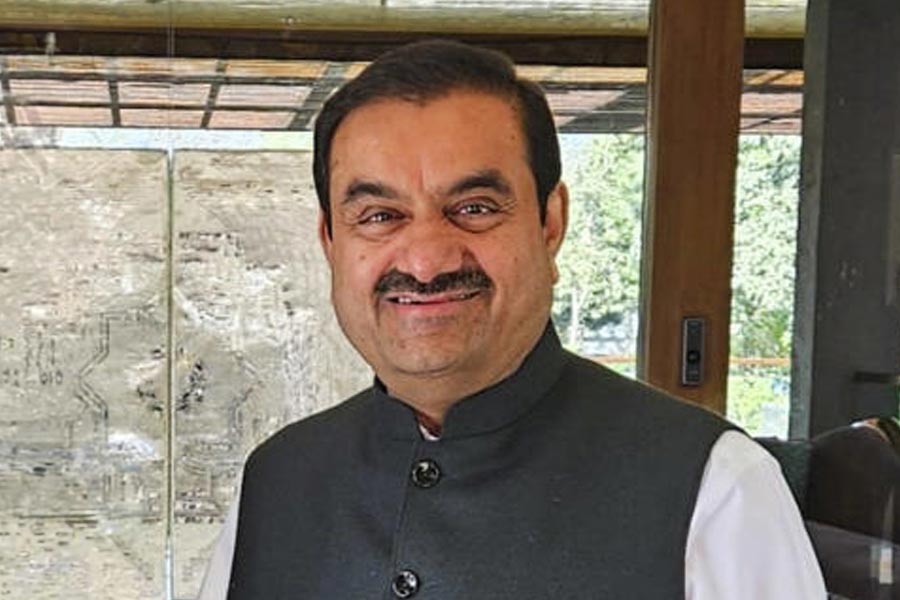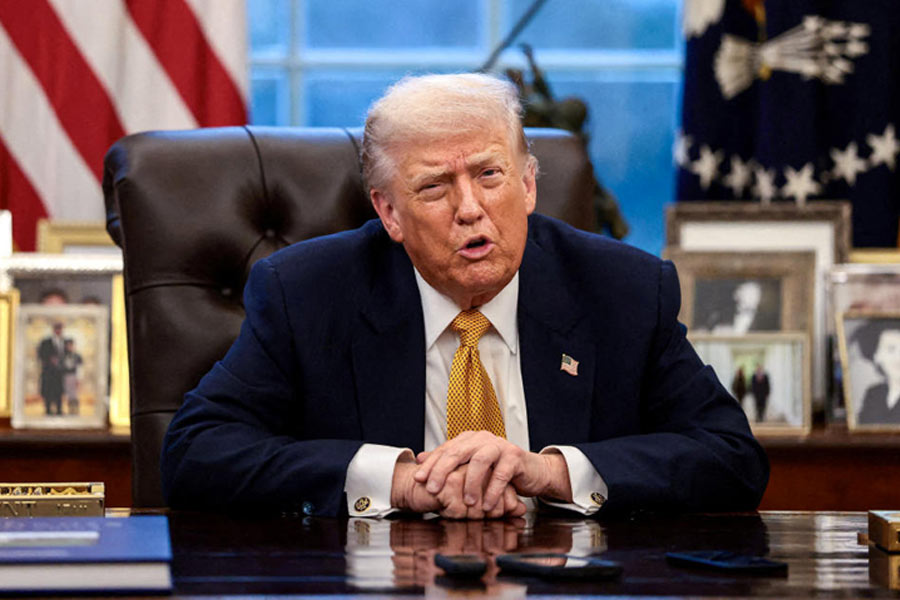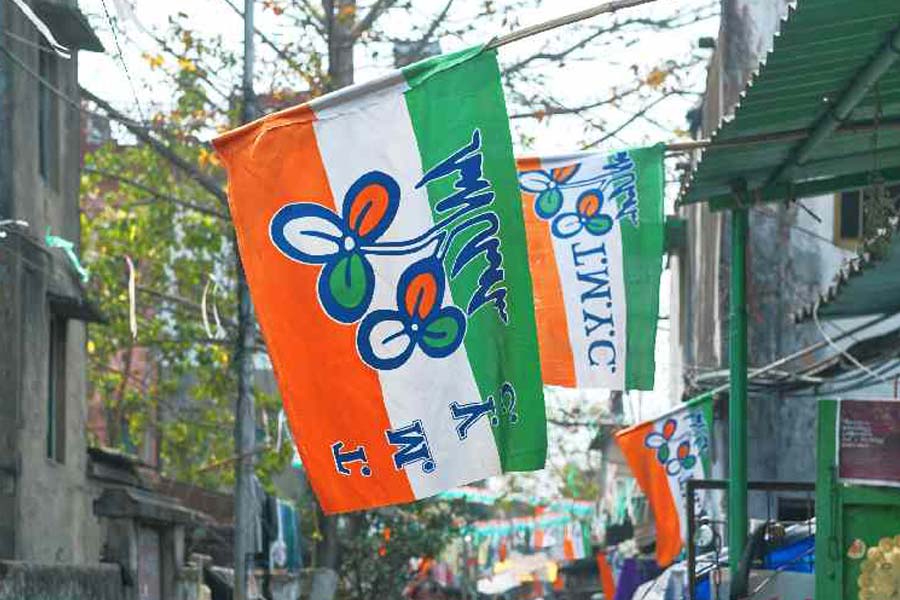US President Donald Trump has signed an executive order directing the department of justice to pause enforcing a nearly half-century-old law that was used to launch a bribery investigation against the Adani group.
The development comes a day before Prime Minister Narendra Modi is to visit the US on a two-day trip during which he will meet Trump.
The Foreign Corrupt Practices Act (FCPA) was enacted in 1977 and makes it illegal for companies that operate in the US to pay foreign government officials to secure business deals. Federal authorities have used the law to crack down on bribery, especially in countries where it is a common business practice.
Trump has objected to the law, which has led to charges against some of the world’s largest companies. In November, US prosecutors accused Gautam Adani and his nephew Sagar Adani of bribing Indian officials and charged him with fraud. His company has called those claims “baseless” and taken the unusual step of mounting a legal challenge.
The Adani group has refused to comment on the latest development.
In 2020, Goldman Sachs agreed to pay more than $2.9 billion to settle charges that employees at its Malaysian subsidiary had paid $1 billion in bribes to foreign officials.
The law has been “abused in a manner that harms the interests of the United States”, Trump’s executive order said, adding that its enforcement was impeding foreign policy objectives.
The order bars federal authorities from starting any new investigations under the act or enforcing new actions for 180 days unless the attorney-general determines that an individual exception should be made. The administration will also review existing investigations launched under the act, it said, to “restore proper bounds” on the law.
The order directs attorney-general Pam Bondi to issue new guidance on how to enforce the act “that promotes American competitiveness and efficient use of federal law enforcement resources”.
Last year, the department of justice (DOJ) under President Joe Biden charged Adani for allegedly being part of a scheme to pay over $250 million (₹2,100 crore) in bribes to Indian officials in exchange for favourable terms for solar power contracts.
The bribery charge against the Adani group stemmed from a situation that arose when Adani Green Energy found itself unable to sell solar power through the Solar Energy Corporation of India (SECI) — a government-owned company that helps develop renewable energy projects in India by parcelling out fiscal incentives and acting as a passthrough for power sales to state-owned power distribution companies.
The DOJ had said in its indictment filed before the Eastern District Court of New York that the bribes became necessary when the SECI was unable to find buyers for the high-priced solar power.
The indictment did not mention the price at which the power was sold to the power distribution companies in five states: three in Andhra Pradesh, and one each in Tamil Nadu, Chhattisgarh, Odisha, and Jammu and Kashmir.
The Securities and Exchange Commission (SEC), the US market regulator, filed a separate complaint on the bribery scandal in which it named just two defendants: Gautam Adani and Sagar Adani.
The regulator said the Adanis were involved in “paying or promising to pay the equivalent of hundreds of millions of dollars” in bribes to Indian government officials to secure their commitment to purchase power at above-market rates that would benefit Adani Green Energy and Azure Power, a renewable energy producer in India.
The DOJ’s indictment had also said that FBI special agents had approached Sagar Adani in the US with a “judicially authorised search warrant” and taken custody of his electronic devices from which information relating to the bribery investigation was gleaned.
The search warrant specifically mentioned “violations of the FCPA, securities fraud, wire fraud and related conspiracies” involving Sagar Adani, Gautam Adani and Vneet S. Jain, managing director of Adani Green Energy.
Azure had said the former employees referenced in the charges had been “separated” from it for more than a year.
The pause on the FCPA and its review is being seen as a relief to the Adani group but it remains to be seen what stand the DOJ takes after the six-month review period.
FCPA investigations and enforcement actions initiated or continued after the revised guidelines or policies are issued “shall be governed by such guidelines or policies; and must be specifically authorised by the attorney-general”, Trump’s order said.
After the revised guidelines or policies are issued, the attorney-general shall determine whether additional actions, including remedial measures with respect to past inappropriate FCPA investigations and enforcement actions, are warranted and shall take any such appropriate actions or, if presidential action is required, recommend such actions to the President, it added.
Separately, half a dozen US Congressmen have written to the new attorney-general against “questionable” decisions of the DOJ, such as the indictment of the Adani group which, they said, “jeopardises the relationship with closeally India”.
Lance Gooden, Pat Fallon, Mike Haridopolos, Brandon Gill, William R. Timmons and Brian Babin on Monday wrote to Bondi drawingher “attention to some questionable decisions made bythe DOJ under the Bidenadministration”.
“Some of these decisions involved selectively pursuing and abandoning cases, often acting against America’s interests at home and abroad, jeopardising relationships with close allies like India,” the Congressmen said in the joint letter.
India, they said, has been an important ally of the US for decades. This relationship has flourished beyond politics, trade and economics by evolving into a continuous socio-cultural exchange between the world’s two largest democracies, they added.
“This historical partnership and continuous dialogue between friends, however, was put at risk due to some unwise decisions by the Biden administration,” the letter stated.
“One such decision involves a questionable pursuit of a case against the Adani group, an Indian company whose executives are situated in India. This case rests on the allegation that preparations were made by members of this company in India to bribe Indian officials, also exclusively located in India.
“Instead of deferring the case to the appropriate Indian authorities, the Biden DOJ decided to push forward and indict the company’s executives without any real injury toUS interests being present,” they wrote.
The “selective pursuit” by the Biden DOJ, despite knowing the possible outcomes of such a reckless decision, requires a second look, the Congressmen wrote.










